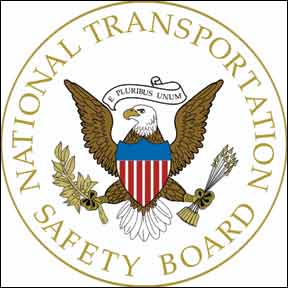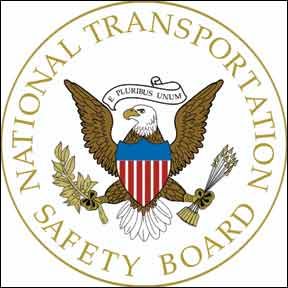As we were putting the finishing touches on this issue, the NTSB announced it would be holding a two-day forum next month, “focused on safety issues related to general aviation.” The event is scheduled for June 19 and 20, at the NTSB’s Board Room and Conference Center in Washington, D.C. The forum is open to the public, free of charge and may be viewed live via Webcast on the board’s Web site, www.ntsb.gov.

288
The event, “General Aviation Safety: Climbing to the Next Level,” will be chaired by NTSB Chairman Deborah A. P. Hersman and all five board Members will participate. Neither an agenda nor list of participants was available. A press release announcing the forum noted, “Among the key safety issues the forum will address are pilot training and performance, pilot access to and use of weather-related information, and aircraft design and certification. Panelists participating in the forum will represent industry, government, academia, and professional associations.”
That same NTSB press release quoted Chairman Hersman as noting, “Each year, hundreds of people are killed in general aviation crashes, and thousands more are injured. Tragically, the circumstances leading to these accidents are often repeated over and over, year after year. If we are going to prevent future fatalities and injuries, these common causes must be addressed.” She’s right.
Earlier, the NTSB on April 27 released its preliminary accident statistics for 2011. In that press release, the NTSB said, “General aviation accidents, which continue to account for the greatest number of civil aviation accidents, reversed their downward trend over the previous two years increasing from 1439 in 2010 to 1466 in 2011. However, there were 263 fatal general aviation accidents in 2011, down from 268 in 2010. General aviation fatalities declined from 454 in 2010 to 444 in 2011. While the number of general aviation flight hours increased in 2011, the accident rate per flight hours decreased from 6.63 in 2010 to 6.51 in 2011.”
There’s some good news in those numbers—namely, the ever-so-slight-reduction in the rate of accidents—but there’s not nearly enough improvement.
Yes, general aviation is riskier than sitting at home watching television. Yes, separating out the riskier operations—bush flying, experimentals, energy exploration, air ambulance—from the whole improves the picture. But GA pilots continue to make the same mistakes each year, with the same outcome, which paraphrases a popular definition of insanity.
While the NTSB is to be applauded for its concern and desire to improve GA’s accident record, the industry itself should be at the forefront of such an effort. Improving our safety record should be the concern of everyone with a stake in GA. If we don’t do it, someone will, and we might not like the results.
— Jeb Burnside




